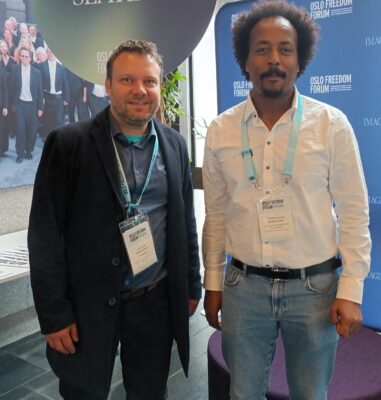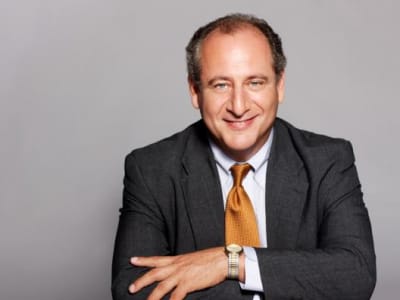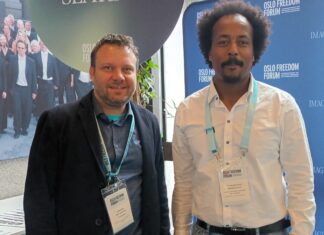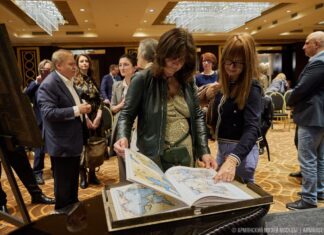BELMONT, Mass. — On Saturday, January 21, the National Association for Armenian Studies and Research (NAASR) hosted a virtual panel discussion to analyze why the current blockade of Artsakh has received such a tepid response in the Western media.
The four panelists were Prof. Bedross Der Matossian of the University of Nebraska, an expert on Ottoman and modern Middle East history; David L. Phillips, the director of the Program on Peace-Building and Rights at Columbia University’s Institute for the Study of Human Rights; Lara Setrakian, journalist and president of the Applied Policy Research Institute in Yerevan (APRI-Armenia); and Prof. Henry Theriault, a leading genocide scholar, of Worcester State University.
Marc Mamigonian, NAASR’s director of academic affairs, and Prof. Christina Maranci, the Mashtots Chair of Armenian Studies at Harvard as well as president of the Society for Armenian Studies (SAS), served as co-moderators of the panel.
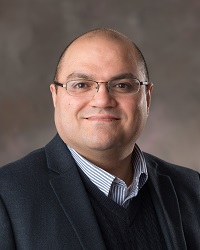
Der Matossian: Academia Needs to be Better Informed
Der Matossian spoke about the academic community’s role. Stating that “The silence of the academic community is astonishing,” in regard to the current blockade, Der Matossian went on to speak of academia’s response to the 2020 war. He, as head of the SAS, had approached the Middle East Studies Association (MESA) to make a statement on the war, but they failed to do so. He attributes the silence to the “marginalization of things Armenian in Middle Eastern Studies” due to three main factors: ambivalence, ignorance and Turkish propaganda. He added that even many Middle Eastern scholars are unclear about who the Armenians are and where they live.
In terms of the broader academic world, Der Matossian gave several reasons for why the conflict is being ignored. He mentioned that Artsakh is not geographically close to Europe, and the conflict has become similar to other “non-relevant” conflicts in the East, like the crisis in Yemen. He rattled off other possible reasons, including successful Azerbaijani propaganda, racism against Armenians as being “not white” and therefore of less relevance, the overwhelming focus on the war in Ukraine, Armenia being in “Russia’s neighborhood”, and finally, the feeling that the West has already “paid their dues” to the Armenians by recognizing the Genocide.
